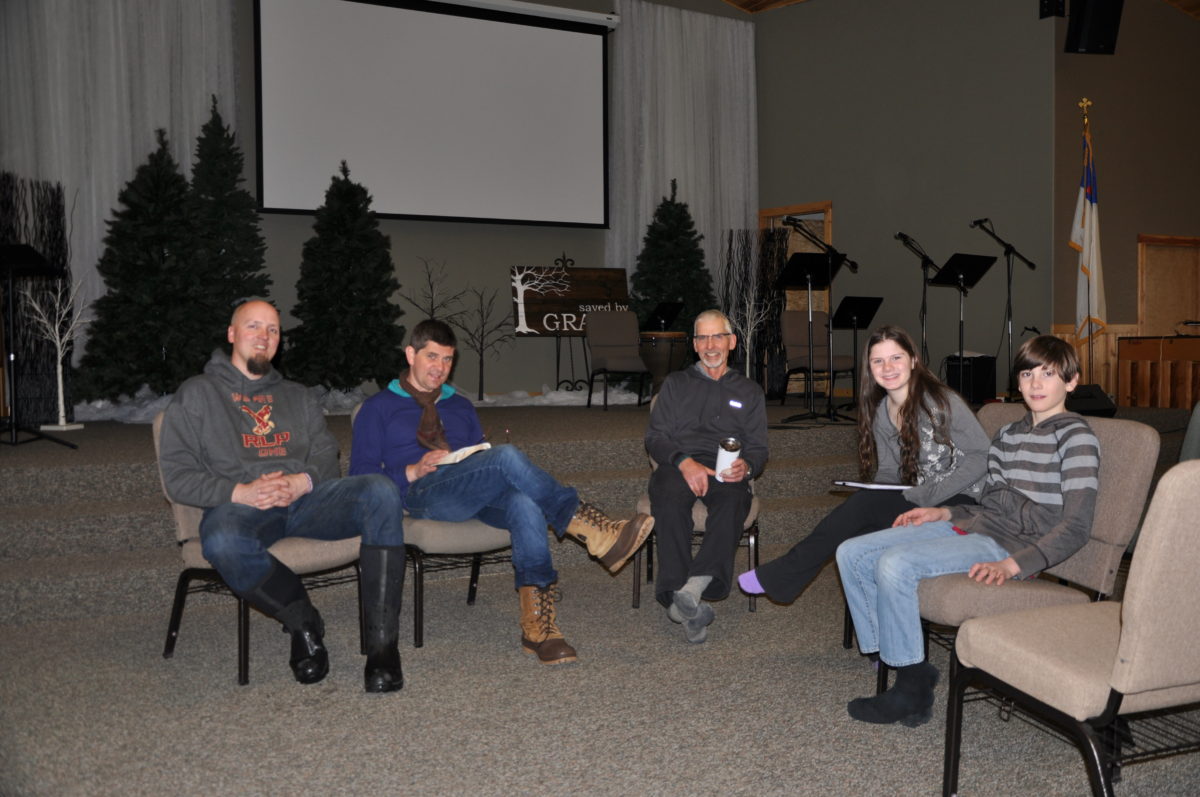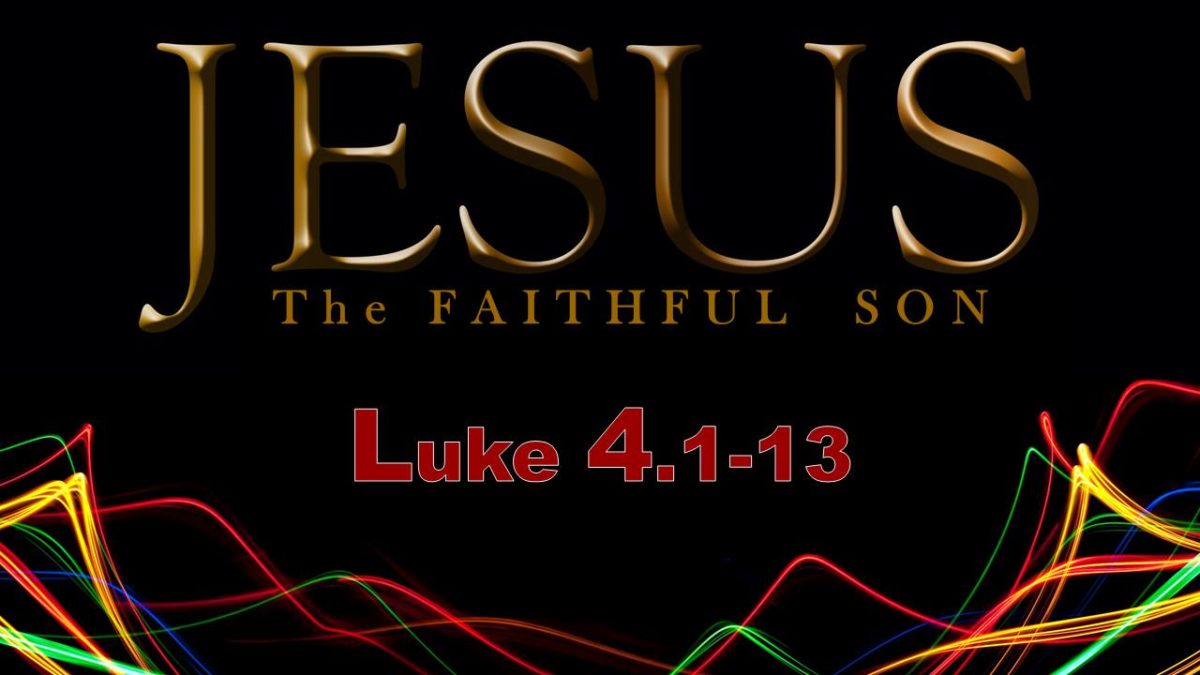Have you ever felt coolness toward God and His things? Sure, you have. Me too.
Having given his account of Jesus’ baptism and temptation, Luke now records the actual beginning of Jesus’ ministry. And, well, Jesus is turning the place upside down. He’s going about Galilee in the power of the Spirit, teaching in the synagogues, being “glorified by all” (:15, ESV).
Things go well when he arrives in his hometown of Nazareth, at first at least. Luke gives us the interesting account of a 1st century synagogue service in which Jesus is chosen to speak, and then reads and expounds passages from Isaiah 58 and 61.
The Spirit of the Lord is upon me, because he has anointed me to proclaim good news to the poor … to proclaim liberty for the captives … recovering of sight to the blind … liberty to those who are oppressed … to proclaim the year of the Lord’s favor.
Everyone must have sat up when Jesus concludes the reading by saying, Today this Scripture has been fulfilled in your hearing (:21).This must have been exciting! Jesus’ kinsmen and neighbors had heard of Jesus’ teaching in the surrounding region. Now, Jesus has come here. Imagine the expectations.
Even with as much momentum as Jesus appears to have in this first part of the account, there’s a little hitch. Do you see it? Like a chair that gets tripped over in the dark, there’s a stray comment that hangs out in the passage: Is not this Joseph’s son?
This is revealing of their expectations. They’re saying, Since this is our local boy, certainly God is going to bless us over-and-above those other places where Jesus has been teaching. Maybe, if he does something really good, we’ll respond … maybe?
It’s also revealing of their heart condition. They’re saying that they are good enough the way they are; they’re content in their own righteousness. And that’s where Jesus goes with a little parable: Physician, heal yourself. He’s reading their minds, and they’re saying, Because you’re one of us, give us a double shot of that good medicine you’ve given others in those Gentile regions, like Capernaum. Bring it on!
In response, Jesus tells two stories from Israel’s past. And, believe me, they’re momentum changers, because his meaning is unmistakable. The first is from 1 Kings 17-18, during the time of Elijah, when evil king Ahab ruled. God’s people didn’t get any goodies in those days, but an outside in Zarepheth did, a widow unrelated to God’s people. The second and better known story comes from 2 Kings 5.1-14. Many lepers in Israel were left untreated, but God chose to work in the life of one Namaan, a Syrian.
The response of those who but minutes before had lauded Jesus is swift and terrible. They drive him to the edge of a cliff and attempt to cast him off.
Why did they get so angry? Well, Jesus had exposed and touched a nerve. And, it’s the same nerve the Spirit of God touches in me and you, sometimes, when we’ve grown cool toward God.
The stories Jesus told recounted why God chose not to act. The Israelites in the 1-2 Kings accounts were content in their own self-righteousness. They wanted God’s wonders, but on their terms, not God’s. The Nazarenes in Jesus’ day were the same: they wanted a double-shot of God’s kingdom blessings, because they thought they knew who Jesus was, but they didn’t want to change.
All this gets a little close to home! Many times I want to see God do extraordinary things in my life. And, I might even get a little jealous at God’s work in those who seem a bit more undeserving than I am. This usually takes place when I’m weary of my routine. Get up … load the stove … dishes … drive places … take people places … emails and phone calls … work like crazy on my message, just like last week … Oh, where did the day go? Oh, why doesn’t God make my life bigger and better?
How would it be if, more often, I recognized God’s extraordinary work in the ordinary? Yes, this is “Joseph’s son,” but he’s the one bringing the kingdom. How do I change to know your blessing, God, through Jesus? Forgive me my spiritual pride that makes me want your blessing on my terms, not yours!
The reason people often refuse to respond to Jesus (or grow cool when they already have) is spiritual pride that expects God to work on their terms, not on His terms.
And, you know what, when I bring those bits and pieces of my day to God and ask the Lord to change me and redeem the ordinary business of my life, God is going to do extraordinary work, because that common business becomes the entry-point for His kingdom work.
Really! It’s not the fullness of the kingdom. The healing of all sickness and the release of all those in poverty await Jesus’ second coming. But, God’s kingdom work takes place, extraordinarily, when my conversation with a teenager now leads to Jesus’ work and an opportunity for redemption and spiritual release. God’s work takes place, extraordinarily, when I join those stacking chairs so his people can meet again and hear God’s word.
None of God’s extraordinary work happens when I’m proud, or on my terms. Like in Jesus’ own day, Luke 4.14-30 helps us understand what God is doing now. And, it helps us understand what God won’t do, ever.
How about about you? Take a minutes to reflect on the passage and think about some questions:
- One challenge in this passage involves discerning why Jesus’ kinsmen and neighbors would turn on him so quickly? Can you put in your own words why you think this happened? What spiritual condition were they revealing?
- Have you ever know anybody to reject Jesus? Why did they say they were rejecting him, and how were their reasons like those in Nazareth?
- How are those who are trusting Jesus not exempt here? How is our coolness toward God not unlike those who reject him entirely? Is there a sense that we, also, have our expectations set on the way we think Jesus ought to act toward us?
- We won’t really see this till next week, but what is the proper response we ought to have toward Jesus? How do you think those in the 1-2 Kings stories who were blessed by God and those in Capernaum responded to Jesus? What set them apart and made them different than those who reject Jesus in this passage?
- How do you need to depend on Jesus so that “Joseph’s son” will touch the ordinary events of your life? What do you do in the business of the day that could become the starting place for God’s kingdom work in someone else’s life?






